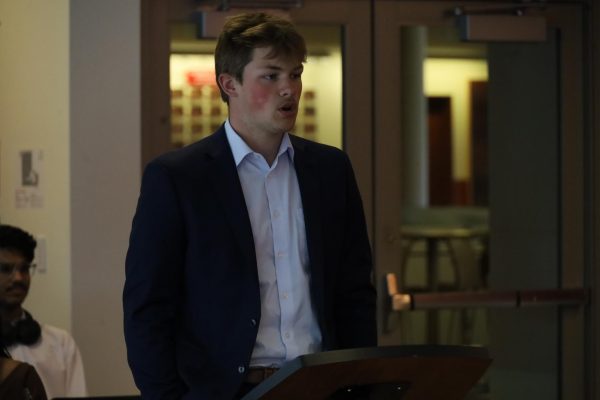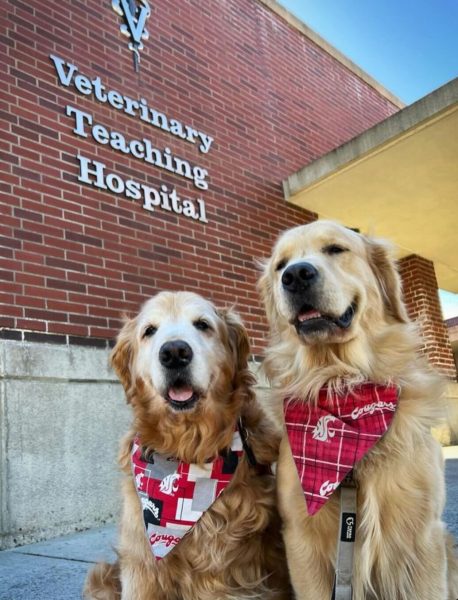Professors debate relationship between atheism and science
April 7, 2017
Students packed the CUB auditorium on Friday night to hear an atheist and a Christian discuss whether science supports atheism.
The event was presented by the Veritas forum, a non-profit Christian organization that holds discussions across college campuses to “ask life’s hardest questions,” according to their website.
The discussion featured WSU professor Margaret Davis, an atheist, and Washington University in St. Louis professor S. Joshua Swamidass, a self-identified “scientist Christian.”
Davis said she was raised Christian but began to question it at an early age. She said she became an atheist at age 14 and now also considers herself a humanist.
Swamidass was raised Christian and, like Davis, soon began asking himself if he would still be a Christian had he not been raised that way. It was then that he began to study and try to find something within the Bible that he said was not “man-made.” It was once he began to study Jesus Christ that he really started believing, Swamidass said.
He said he believed the evidence that Jesus had risen from the dead, pointing to the book “More Than a Carpenter,” by Josh McDowell, as something he read early on that cemented his faith.
Swamidass said the only evidence he could find for the existence of God was Jesus.
Davis said she believes the world is governed by science. She said she lives her life thinking from a rationally scientific point of view, and from that she did not think a creator was the most plausible explanation.
“I don’t think there is a higher reason for us being here,” Davis said.
Swamidass asked Davis if there was any part of her that wondered about the existence of a God, to which she replied that she believed the Christian God was a human creation. She said if there was a God, it may or may not be a cloud, or a giant turtle floating in space.
Davis said she could not imagine an accumulation of evidence which could convince her of the existence of God.
Both discussed how historically natural phenomena such as earthquakes or lightning were said to be God’s doing and now are explained scientifically.
“Theology is just the attempt to understand what transcends human understanding,” Swamidass said.
Davis said she believes one day science will come close to, or answer, all of life’s questions, including those about human consciousness.
Many students described the event as interesting, but also said it was not what they had expected. Two students said they identified as Christians but did not believe Swamidass accurately represented them in his role.
“There is a lot of value in hearing two different perspectives,” said Ty Bjornsom, a WSU junior.



















